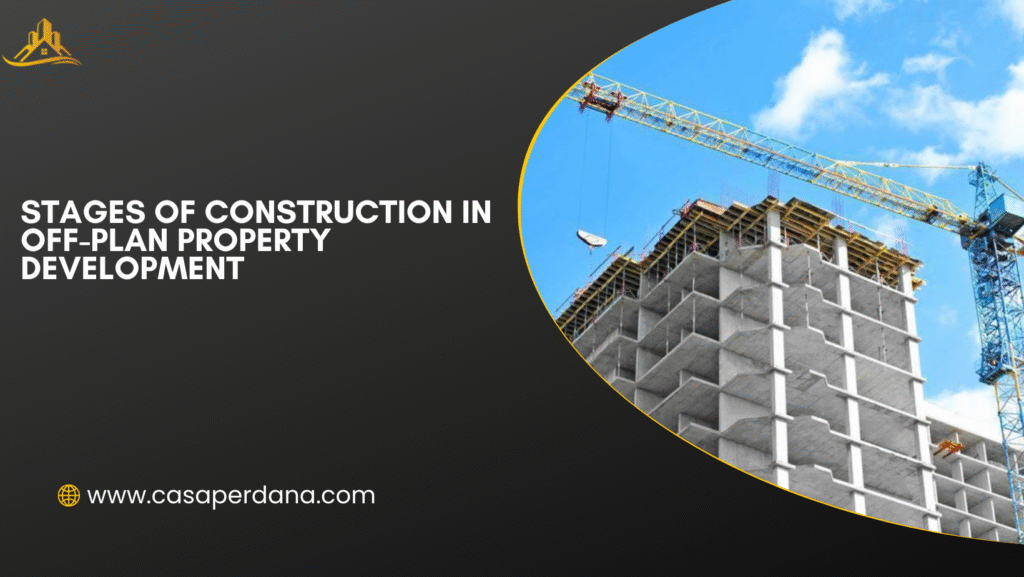Buying multiple off-plan property units is a powerful investment move, but it requires smart financial management. Since you’re committing to properties that are still under construction, staying on top of cash flow is essential.

You’ll be juggling multiple payment schedules, potential fluctuations in construction timelines, and future plans for rental or resale.
Without a proper cash flow strategy, even the most promising deals can feel overwhelming. Thankfully, there are ways to keep your finances stable and stress-free.
How to Manage Cash Flow While Buying Multiple Off‑plan Units

Here, we’ll explore eight smart ways to manage cash flow while buying multiple off-plan units:
1. Stagger Your Purchase Commitments
Avoid buying all units at once. Instead, spread out your purchase agreements across different stages of development.
For example, buy two now, two in six months, and another two later. This approach allows you to manage payment milestones more effectively and keep your cash reserves healthier.
With staggered commitments, you’re not paying multiple deposits or reaching multiple construction milestones at the same time. It also gives you room to evaluate how one project performs before diving into the next. Think of it as diversifying your timeline to reduce financial pressure and stay flexible.
2. Negotiate Flexible Payment Plans
Most off-plan developers offer flexible installment options, taking full advantage of this. Spread payments across 12 to 24 months, ideally in line with construction stages. When buying multiple units, ask the developer for custom plans or discounts in exchange for volume.
For example, you may be able to pay 10% down and split the remaining 90% over manageable chunks.
By negotiating flexibility upfront, you protect your liquidity while maintaining investment momentum. Don’t accept the standard plan without exploring better alternatives, especially when you’re buying more than one unit.
3. Prioritize Cash Flow Over Capital
It’s tempting to pay off units quickly to avoid interest or lock in lower prices, but this can strain your cash flow. Instead, prioritize having sufficient monthly liquidity to meet obligations.
Think long-term: a balanced cash flow allows you to maintain your investment portfolio, cover emergencies, and still meet property commitments.
You can always accelerate payments later if your income increases. But if you drain your resources too early, it can lead to financial stress or even force you to sell at a loss. Smart investors always keep some cash cushion intact.
4. Monitor Construction Timelines Closely
One delay can affect your entire financial schedule, especially when you own multiple units. Stay in constant communication with the developer and request regular construction updates.
If a timeline shifts, it could alter when your next installment is due or when you can start earning rental income. By monitoring these developments closely, you’ll be able to adjust your finances in advance rather than scrambling at the last minute.
Consider using a spreadsheet or project management tool to track all units, timelines, and financial obligations. A little organization goes a long way in cash flow control.
5. Leverage Rental Projections Strategically
If your goal is to rent out some or all of your off-plan units once completed, start working on your rental income plan early. Use estimated rental values to forecast your cash inflow once units are handed over.
This helps you calculate potential return on investment and plan how rental income might support further payments or cover maintenance costs.
You can also use rental projections to determine which units to rent and which to flip. Aligning your income strategy with your payment obligations gives you better cash flow visibility.
6. Use Bridge Financing or Investment Loans Wisely
If you’re confident in your investments but need short-term capital to manage your installments, explore low-interest financing options. Bridge loans or property investment financing can help fill temporary gaps in your cash flow.
However, use this option cautiously, only when you have a clear repayment plan and income projection. Work with a financial advisor or real estate-savvy lender who understands the off-plan model.
Avoid using high-interest credit or unplanned borrowing, as that can quickly eat into your returns. Financing can be a tool, not a trap, when used strategically.
7. Set Aside a Dedicated Property Reserve Fund
When buying multiple units, always maintain a separate reserve fund just for your real estate expenses. This fund should cover unexpected charges, like government levies, developer variations, or minor upgrade requests.
It also cushions you if one of your income sources is delayed. A good rule of thumb is to save at least 10% of your total property cost in reserves. Don’t mix this with your emergency or lifestyle savings.
A dedicated property reserve gives you peace of mind and financial resilience when juggling multiple off-plan investments.
8. Work with a Property Accountant or Cash Flow Expert
If you’re scaling up your property portfolio, consider hiring a professional to help manage your finances.
A property accountant or real estate investment consultant can help structure your purchases, minimize taxes, and optimize payment timing. They’ll also help you assess profitability across each unit and ensure your cash flow stays in a healthy range.
While this may feel like an added cost, their insights can save you from costly mistakes and cash shortfalls. When you’re handling multiple investments, professional support can be a game-changer for both cash flow and peace of mind.
Related Searches:




